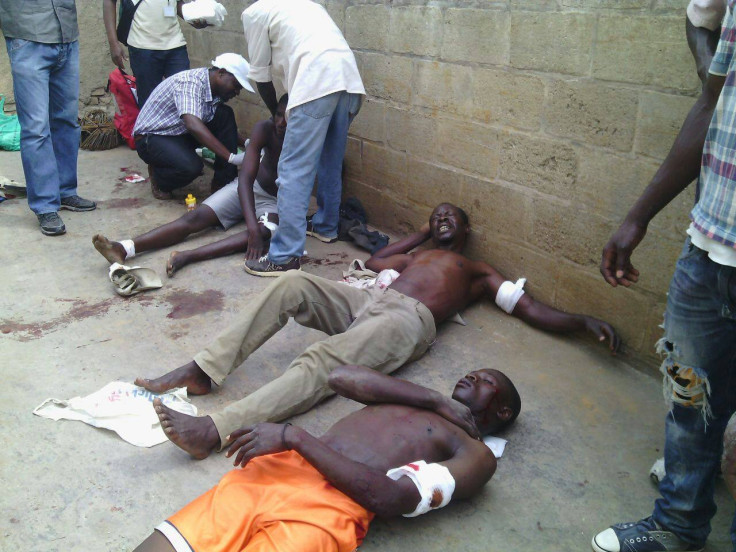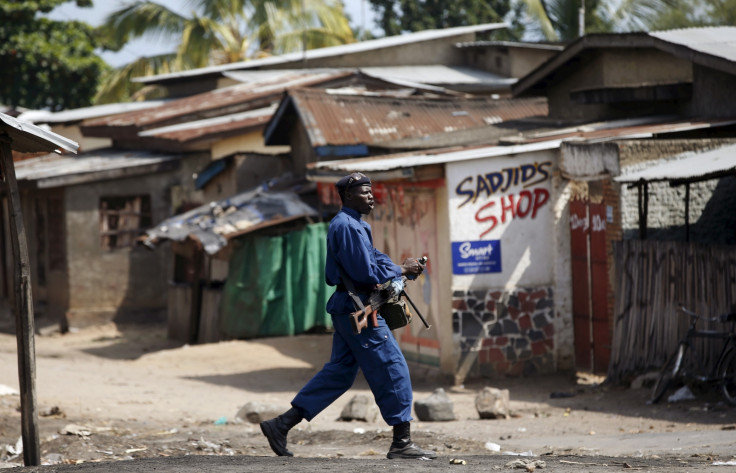Burundi: Three dead in a series of grenade attacks amid rumours of second coup

Unidentified men launched a series of grenade attacks in Burundi's capital on Thursday (25 June) – as rumours of a potential second coup are spreading in Bujumbura.
It is estimated that more than 80 have died and about 150,000 civilians have sought refuge in neighbouring countries since the start of the violence on 26 April, when the National Council for the Defense of Democracy (CNDD-FDD) nominated President Pierre Nkurunziza to stand for re-election – his third term.
Protesters accuse him of violating the constitution and the Arusha Peace Agreement, which says the president can only stay in power for two terms.
Nkurunziza's supporters, however, argue the president's first term should not be counted as he was chosen by the parliament and not by the people in an election as is specified in the agreement.
Three dead, nine injured
A first grenade was thrown at 10am local time on Thursday in Bujumbura's town centre in front of the former central market and next to the headquarters of the Mutec bank.
Three people were killed and nine injured, according to sources.
10 minutes later, a second grenade exploded on the Avenue du 18 Septembre in the centre of the capital, around 150m from the German embassy and 100m from the European Union's embassy.
According to a local journalist, who wished to remain anonymous, the recent attacks were not targeting anyone in particular.

"The two places don't represent anything strategically. It's not against the police or the government, but just against the first passer-by," the local journalist told IBTimes UK on Thursday.
Many in the capital believe the men behind these attacks are hoping to "install a climate of fear" before the elections.
While legislative and municipal elections will be held on 26 June, the embattled presidential elections are now planned for 15 July.
"We still don't know who is throwing these grenades: it could either be people who want to create mayhem to prove that the government is unable to contain security, or it's the president's supporters themselves who want to create a climate of fear so as ensure that the population won't revolt on the day of the elections. If such a climate is in place, then the president's party can roll-out an election without witnesses," he said.
Spreading grenade attacks
Thursday's incidents follow a recent series of grenade attacks.
Four people were killed and 30 others injured on Sunday (21 June) night in a series of grenade attacks in Burundi. The bloodiest attack happened in Ngozi, the home province and stronghold of the head of state.
Two other attacks were reported in neighbouring povinces of Kirundo and Muyinga.
On Wednesday, a grenade was also thrown on the house of a local journalist, Diane Nininahazwe, who works for the private radio station Bonesha Fm.
Easy access to grenades
Grenades are the easiest weapon to get access to in Burundi.
"It's the weapon that is most easily accessible in the region, there are stocks of it from the different wars in the area. Everyone can obtain some. They can be found everywhere – in people's homes too. And when these people have no other means to defend themselves, they turn to grenades," the local journalist said.
According to sources, certain police officers, who had been conducting raids in a number of dissenting neighbourhoods in the capital, refused to enter parts of the districts "because they know there are grenades inside, and that they are risking their lives by going in".
"We're at the dawn of the implosion, a civil war," the local journalist said.
Civilians and army deserters may be planning an armed struggle to topple Burundi's leadership two months after a first failed coup, both government and opposition members claimed.
According to a source close to the opposition, civilians are now seeking "to get weapons so that they can face police with similar firepower".
The Burundian army led by General Godefroid Niyombare announced a coup on 13 May, but the coup leaders failed to secure outright support from the rest of military.
After hours of pitched battle between forces loyal to Nkurunziza and supporters of the coup, the insurgents surrendered and Burundian forces arrested the leader of the failed coup on Friday 15 May.
Burundi up close: Check out our Flipboard magazine
© Copyright IBTimes 2025. All rights reserved.





















